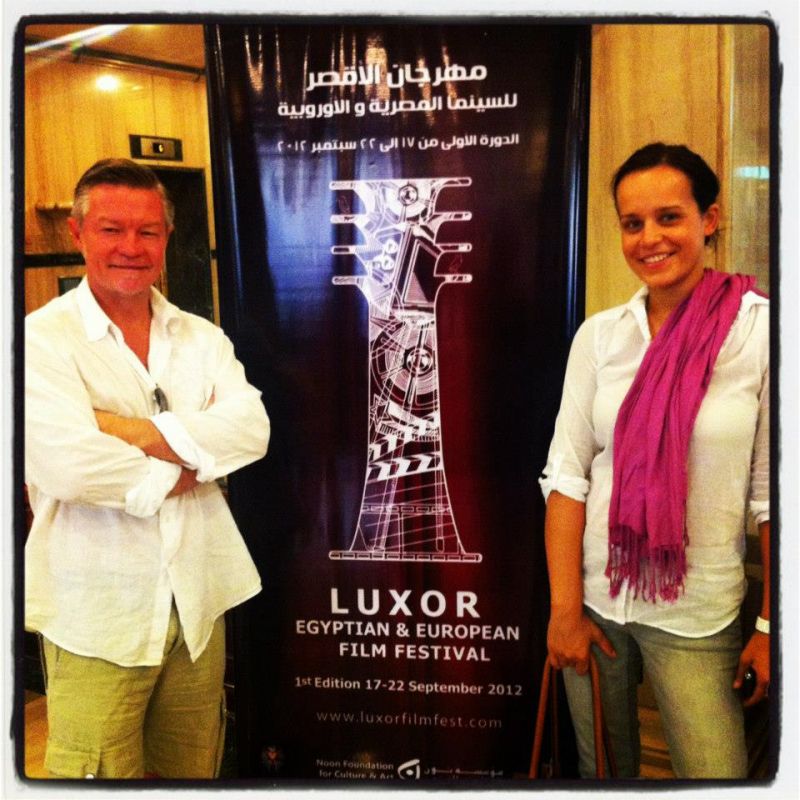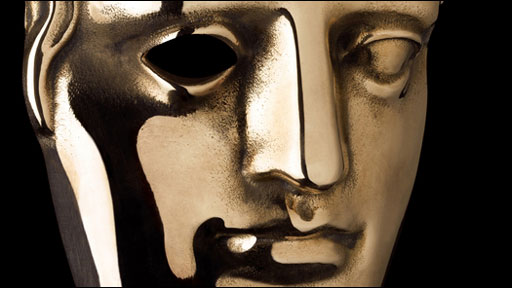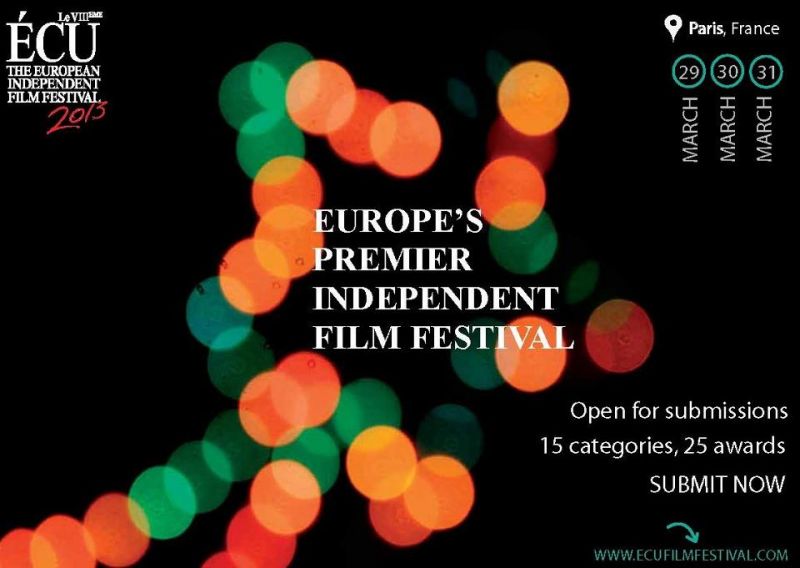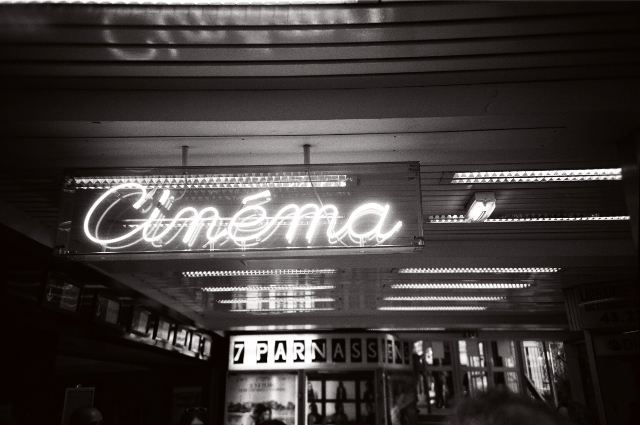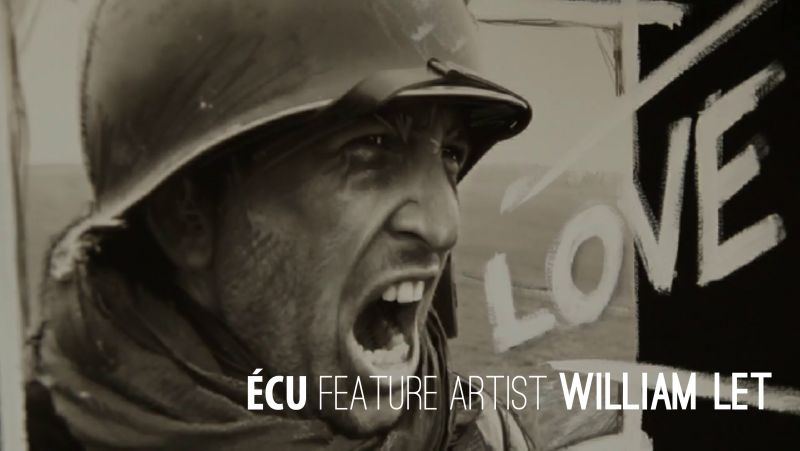|
|
||
|
Pro Tools
FILMFESTIVALS | 24/7 world wide coverageWelcome ! Enjoy the best of both worlds: Film & Festival News, exploring the best of the film festivals community. Launched in 1995, relentlessly connecting films to festivals, documenting and promoting festivals worldwide. Working on an upgrade soon. For collaboration, editorial contributions, or publicity, please send us an email here. User login |
Meet Indie Filmmaker: INK"Ink" is a subversive and unsettling ÉCU Student short directed by Nuno Neves . Who knew ink had such an organic, benign energy-- able to create images that are hypnotic and frightening... By Nick Forrester Q: This short plays with the visual properties of ink. How did you go about filming the ink; the fast moving black compared to the blending colours? The short was all filmed on a wood table I set up and lit, in my building´s comunity garage. The ink was poured down a white piece of glass, shaped like a half moon. Because of this shape, the ink kept moving towards the center, slowly. The main concept of the movie is genesis and how it is always started by a conflict between opposing forces. I start with black and white because they are opposites, the absence of colour and all the colours mixed up.The pure white is static and the black contaminates it, starting the evolution. It is similar to sperm and an egg, which are made of cells that can become any part of the human body (organs, skin, teeth, etc.) when they collapse. In the film the conflict between two forces creates all the other colours and shapes that follow it. Q: What are the particular properties of ink that make it so appealing to you? Every since I was a child, I recall having dreams in which a black spot on a white wall begins to grow, spreading in the form of tentacles, creating patterns and spirals, until it corrupted the whole wall. I never really thought much about what they meant, but they always freaked me out. So, when I decided to do an experimental work, I immediately knew I had to include that kind of aesthetics. First I thought about using effects, but then I experimented with ink for glass, which is thick and glows, and I loved it. I really like the way when you mix different colours of ink, they create random shapes which, depending on the person who sees it, can appear to be anything. Q: At one point the yellow ink blends to look like a foetal scan. Is it dangerous to look for patterns in a changing, concealing substance, or is this the point? Well, I wouldn´t say it´s dangerous, but I definitely wanted the patterns to be kind of hipnotic, to involve the spectator in the evolution of the substance, as it became more complex and organic. I tried to include shapes that, to me, look like a fetus, fractals and fungus, to enhance the feeling of organic growing. Sometimes people don´t actually see the shapes, but feel there is something organic in the process. Q: There seems to be a malign, extremely subversive energy which is at the heart of this short film. To what extent is the cutting apart of the squid a satisfactory, even enjoyable ending? The whole ambient of the short is subversive, as I tried to make the spectator a little uncomfortable, not only by the images but also with the sound. Right before the cutting of the creature we see a hand touching it in a caring way, this makes what comes after more perverse. The destruction of the creature closes the circle of creation, started with the first drop of black ink. More than a feeling of satisfaction, the idea was that the cutting of the creature served as a relief from the tension that builds up along the short film.
Q: Did you use a real squid? Yes, a dead one. It was bought on the local market and then animated using our hands, in an old small aquarium.
Q: As a filmmaker, what did you want to make the viewer feel? I wanted the viewer to experience the genesis of a life form, from its basics, to its full shape and to its end. And I wanted it to be a malign, perverse experience. Q: Tell me about your next project. I've started directing music clips recently, having finished one last week and having two scheduled to be shot by in the next three weeks. Besides that, I'm finishing post-production of a friend's project, it's a medium length movie we've been working on for the last six months. It's a story about how an unexplained disappearance [of a woman] affects the lives of the people that knew her. 02.03.2010 | ÉCU-The European Independent Film Festival's blog Cat. : energy Entertainment Entertainment Fest directors Food and drink Ink Nick Forrester Squid
|
LinksThe Bulletin Board > The Bulletin Board Blog Following News Interview with IFTA Chairman (AFM)
Interview with Cannes Marche du Film Director
Filmfestivals.com dailies live coverage from > Live from India
Useful links for the indies: > Big files transfer
+ SUBSCRIBE to the weekly Newsletter Deals+ Special offers and discounts from filmfestivals.com Selected fun offers
> Bonus Casino
User imagesAbout ÉCU-The European Independent Film Festival Hillier Scott Hillier Scott (ECU)
Scott Hillier, Founder and President of ÉCU - The European Independent Film Festival
Scott Hillier is a director, cinematographer, and screenwriter, based in Paris, France. In the last 20 years, Hillier has gained international recognition from his strong and incredible cinematography, editing, writing, producing and directing portfolio in both the television and film industries.
Scott began his career in the television industry in Australia. In 1988, he moved to London getting a job with the BBC who then set him to Baghdad. This opportunity led him to 10 years of traveling around world for the BBC, mainly in war zones like Somalia, Bosnia, Tchetcheynia, Kashmir, and Lebanon. After a near fatal encounter with a Russian bomber in Tchechnyia, Hillier gave up his war coverage and began in a new direction.
He moved to New York City in 1998. He directed and photographed eight one-hour documentaries for National Geographic and The Discovery Channel. Based on his war knowledge and experience, Hillier wrote and directed a short film titled, “Behind the Eyes of War!" The film was awarded “Best Short Dramatic Film” at the New York Independent Film and TV Festival in 1999. From that he served as Supervising Producer and Director for the critically acclaimed CBS 42 part reality series, "The Bravest” in 2002 and wrote and directed a stage play called, "Deadman’s Mai l," which ran at Le Théâtre du Moulin de la Galette in Paris during the summer of 2004. He then became the Director of Photography on a documentary titled, “Twin Towers." This was yet another life changing experience for Hillier. The riveting documentary won an Academy Award for "Best Documentary Short Subject" in 2003. In 2004, Hillier changed continents again, spending three months in Ethiopia. He produced “Worlds Apart,” a pilot for ABC America / True Entertainment / Endemol. As you can see, Hillier was and is always in constant movement and enjoys working in a number of diverse creative areas including documentaries, music videos, commercials, feature and short films.
Scott studied film at New York University and The London Film and Television School. He also studied literary non-fiction writing at Columbia University. Hillier's regular clients include the BBC, Microsoft, ABC, PBS and National Geographic. Between filming assignments, he used to teach film, a Masters Degree course in Screenwriting at the Eicar International Film School in Paris, France and journalism at the Formation des Journalistes Français in Paris, France.
View my profile Send me a message The EditorUser contributionsUser links |




















